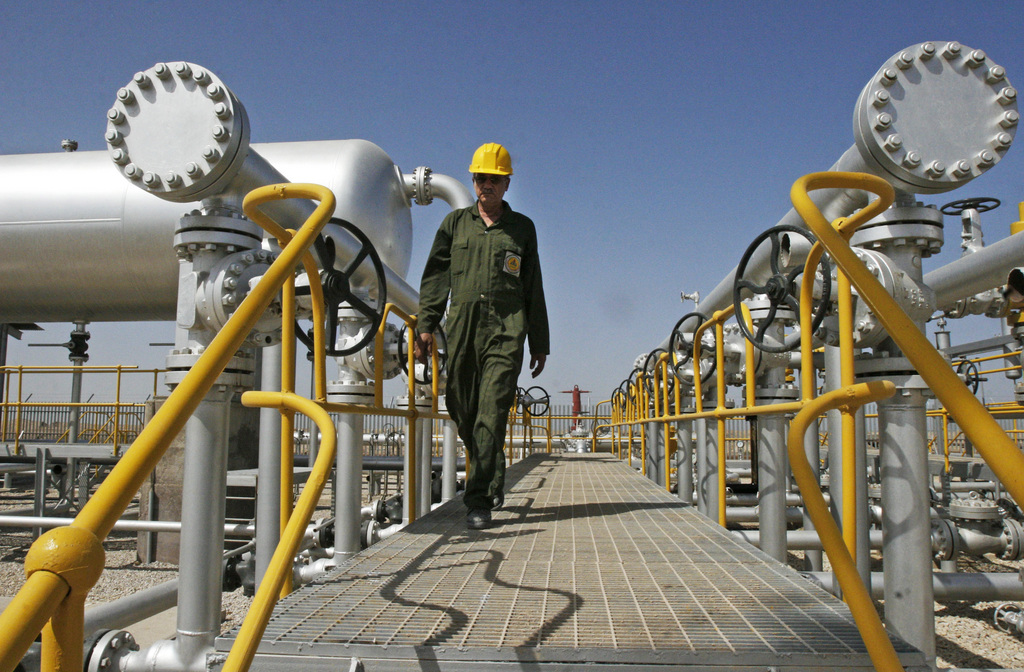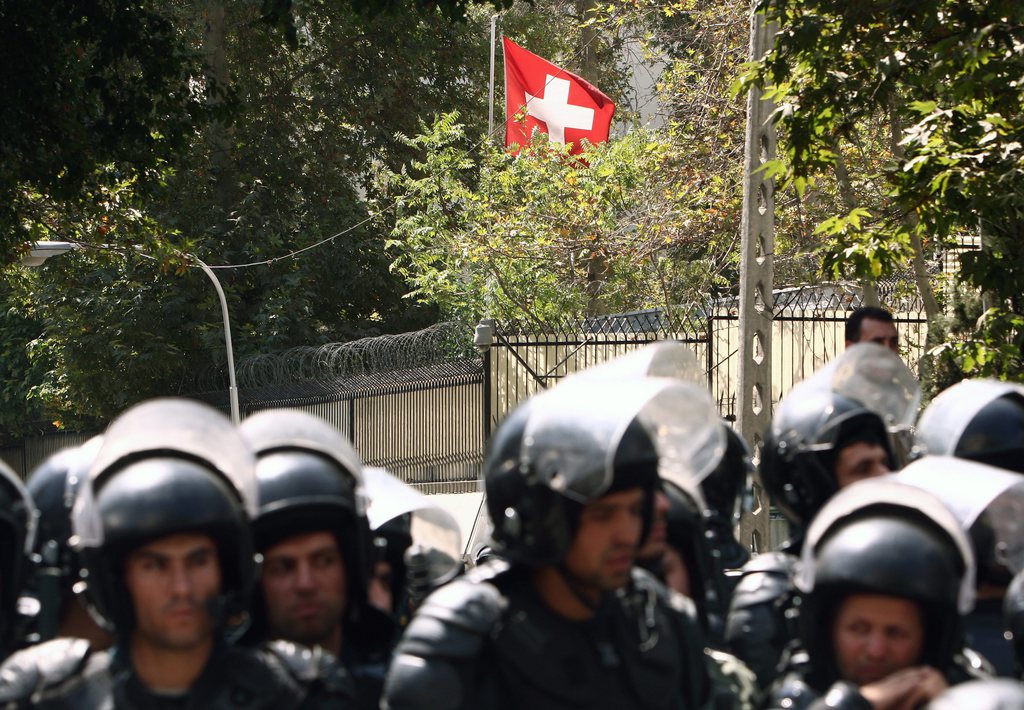Iran’s riches attract Swiss business interest
With positive signals coming from the US-Iran nuclear talks, the gas-rich Middle Eastern country is piquing the interest of Western industrial nations. To be ready when the economic embargo is lifted, Switzerland is increasing contact with the Islamic Republic.
“For six months there’s been a constant stream of European representatives in Iran,” says Suhail el Obeid, a Middle East expert at Swiss Global Enterprise, a Swiss foreign trade promoter.
He says interest in the Iranian market has been growing since the beginning of the year. Following the negotiations in Geneva in November 2013 between Iran and Russia, the United States, France, Britain, China and Germany (known as the P5+1), the EU and Switzerland suspended sanctions for a few products and services in January.
“There are usually several foreign delegations in Tehran at the same time,” he explains. “They want to be equipped in order to hit the ground running when the sanctions are lifted.”

More
Switzerland eases economic sanctions
High on their list of priorities, according to El Obeid, is finding out how much demand exists for their products or services. “For small and medium-sized businesses it’s very important to find on-site partners, wholesalers and customers – and to carry out business talks.”
‘Great expectations’
Whether the sanctions against Iran get lifted depends on the success of international negotiations, which are supposed to conclude with an agreement on July 20.
Talks were held in Vienna in June. Diplomats from the P5+1 have said that the main dispute was over the number of centrifuges Tehran will be allowed to keep to enrich uranium.
Western officials want this number to be in the low thousands, below the capacity that could allow Iran to quickly accumulate enough material for a nuclear bomb. Iran insists on tens of thousands of centrifuges to churn out fuel for a future network of civilian nuclear power stations, although this would take many years to build.
Philippe Welti, president of the Swiss-Iranian Chamber of Commerce, which opened its doors just a few months ago, says the chamber is preparing the ground in order to improve direct contact between the Swiss economy and Iranian clientele.
“The signs from the nuclear talks have generated great expectations that there could possibly be changes in the near future,” said the former Swiss ambassador to Iran. He added that the reasons for interest in Iran lie on the one hand in the massive gas and oil reserves and on the other in the catching up Iran has to do when it comes to technologically high-quality infrastructure equipment.
“A decisive factor is the improvement in the mining and processing of oil and gas. What Iran lacks is the technology – both in quality and quantity – in order to get the most out of this enormous deposit.”
Switzerland – Iran
1936: Switzerland opens embassy in Tehran.
1979: Islamic revolution in Iran; students hold staff of US embassy hostage for 444 days. US breaks off diplomatic relations.
1980: Switzerland starts representing Washington’s interests in Iran, and providing consular assistance to US citizens in Iran.
2008: Swiss Foreign Minister Micheline Calmy-Rey visits Iran to attend signing of gas agreement, sparking widespread criticism at home and abroad.
August, 2010: Switzerland adopts UN-imposed sanctions against Iran after it refuses to suspend its nuclear programme.
January, 2011: Swiss agree to step up sanctions in line with those imposed by the US, the EU and some other countries.
July, 2012: Swiss step up sanctions, but stop short of a ban on trading in crude oil.
January, 2014: Switzerland agrees to partially lift economic sanctions against Iran following ‘positive developments’ at Iranian nuclear talks in Geneva.
Reliable partners?
Welti believes Swiss businesses have a good chance of doing well in this lucrative market; when it comes to so-called specialists and niche products the country is one of the most competitive in the world.
“The car industry in Iran might not be competitive but it’s enormous. In the Swiss supply industry there are small firms which might not be household names but which have a 90% market dominance in the manufacture of certain car parts,” he said, adding that for these highly specialised firms, the potential in Iran is considerable.
As to the question of the reliability of business partners in a country ranked 144th out of 177 in Transparency International’s 2013 corruption index, Welti says: “If the country’s economy needs something important, the Iranian state is prepared to enter into contracts that make it a reliable partner, for example with advance payments.”
But he points out that the Iranian economy doesn’t function according to Western principles of law and order. “In a legal dispute with an Iranian debtor, you can’t expect the justice system to treat you equally.”
Blocked payment channels
In theory, the delivery of many products has always been allowed. But in order not to ruffle US feathers, many companies have chosen to break off trade relations with Iran.
“In addition, because of the international sanctions, they have to go through complicated official channels,” Welti said. “But the biggest problem remains the transaction of payments.”
Iran has been blocked by SWIFT, a network that is practically the only way for institutions worldwide to send and receive information about financial transactions in a secure and standardised way. The alternatives are more complicated and expensive.
How hard it remains to do business with Iran is shown by the reservations of Swiss Export Risk Insurance (SERV).
In response to an enquiry by swissinfo.ch, the State Secretariat for Economic Affairs (SECO) said SERV “is currently prepared to look into coverage applications for Iran as long as the exporter can propose a method of payment that is acceptable to SERV”.
It added: “Despite the easing of sanctions by the [Swiss] government, SERV still cannot deal with any coverage applications where the method of payment has not been established.”
Despite the strong interest, no substantial progress has yet been seen in trade between Switzerland and Iran. In the first four months of 2014, exports rose by 12.8% on the previous year to CHF99.3 million and imports by 11.2% to CHF12.8 million.
Whether this is down to the selected suspension of sanctions or natural fluctuations, SECO doesn’t say because of the short period involved.
(Adapted from German by Thomas Stephens)

In compliance with the JTI standards
More: SWI swissinfo.ch certified by the Journalism Trust Initiative










You can find an overview of ongoing debates with our journalists here . Please join us!
If you want to start a conversation about a topic raised in this article or want to report factual errors, email us at english@swissinfo.ch.